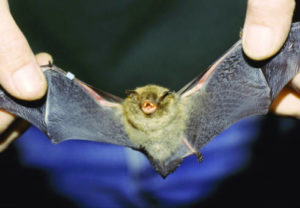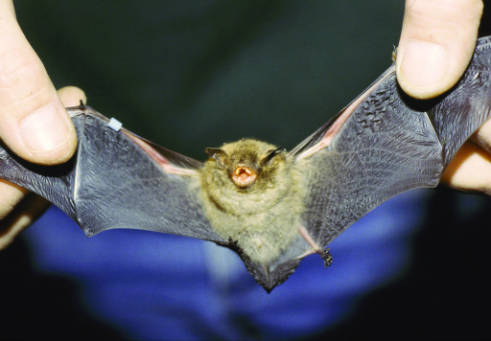Bats get a bad rap on Halloween. They’re the ultimate symbol of spooky, creepy creatures that most people would rather not come across. But that’s not fair! According to Christina Kocer of the U.S. Fish and Wildlife Service’s Northeast Region, bats are among the most valuable animals on the planet. Christina says why, in this special guest post for the Big Green Purse community:

While it’s true that bats can carry rabies, less than 1 percent of wild bats are actually infected with the disease. Even so, don’t go picking up any bats you might find on the ground. That bat may be sick or injured, and it won’t be worth the mandatory rabies shots you’ll have to get if you try to handle it. Call your local wildlife biologist for help.
If bats don’t have rabies and aren’t going to attack me in my sleep, build nests in my hair, or try to eat my brains, what the heck are they, and what do they do?
Bats are mammals — the only mammals capable of flight. They are covered in soft fur and give birth to live young (pups) which are nursed until they are old enough to venture out on their own.
Though some think they look like flying mice, they are not closely related to rodents. The bones in their wings are the same bones you have in your own hand.
Bats make up about one quarter of all mammals. They range from the world’s smallest mammal, the small bumblebee bat, to the large flying fox with its 6-foot wingspan. And they do a lot more than fly. They pollinate fruit plants and fruit trees, help spread seeds around, and devour mosquitoes and other pesky insects. In fact, here in the Northeast U.S., our native bats are small, with most weighing about the same as a few pennies.
The thousands of insects they eat nightly save farmers millions of dollars on insect control and crop damage. That makes bats our most organic form of insect control! These agile fliers are adept at navigating through thick forests in search of their insect prey, readily devouring the pests that eat our food crops and trees, and spread disease.
While there is no reason for us to fear these beneficial critters, I admit, it’s unnerving to have a bat flying circles in your living room. But, if that happens to you, gather your wits, remember why bats are good, and help the little guy escape safely by opening a window so the bat can fly out.
You can get lots of great ideas for protecting bats from the Organization for Bat Conservation.















1 thought on “Bats Aren’t Zombies – and Other Reasons Why You Should Love Bats!”
Would you call me crazy if I said that I find these guys pretty cute?
Comments are closed.